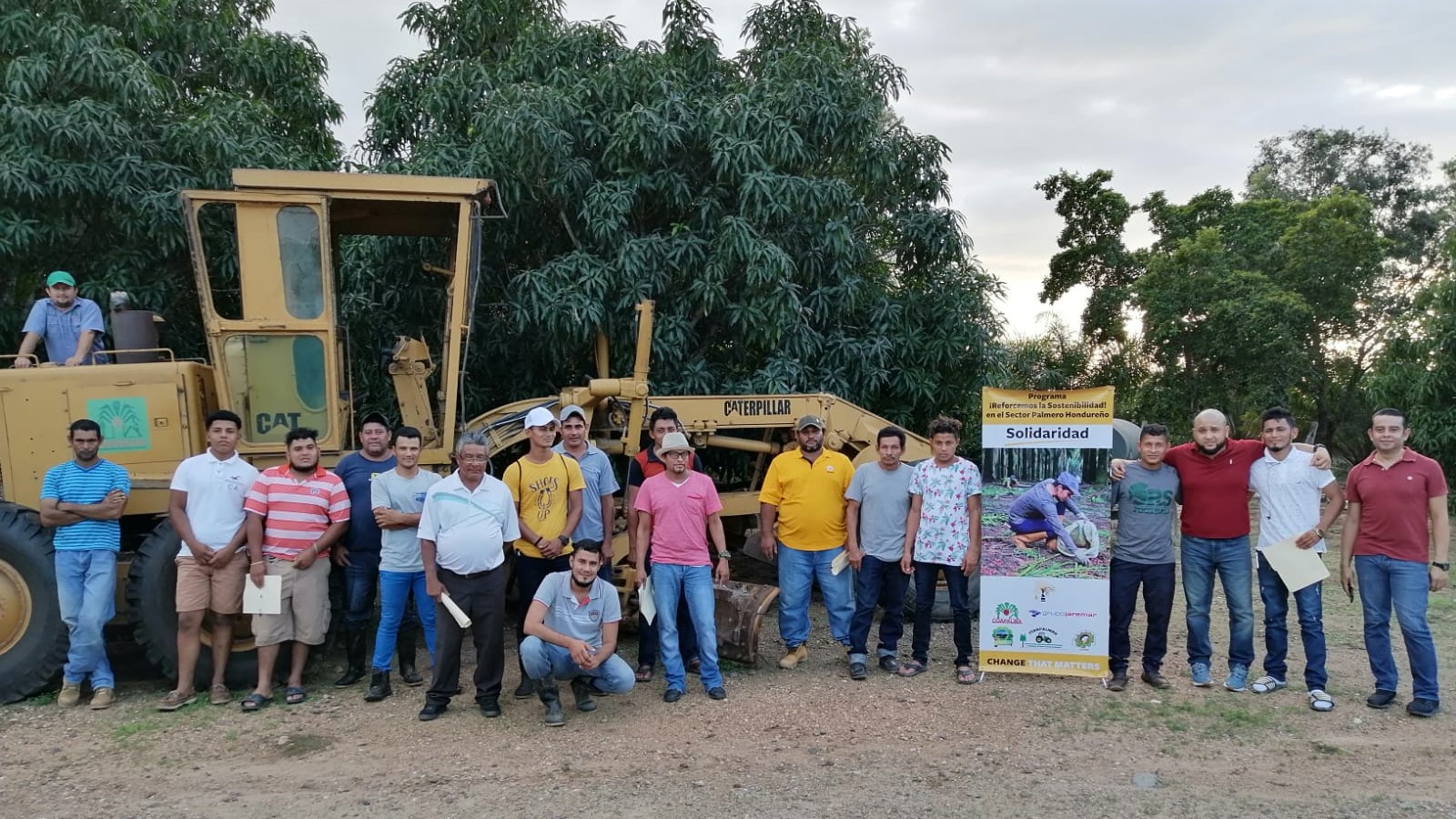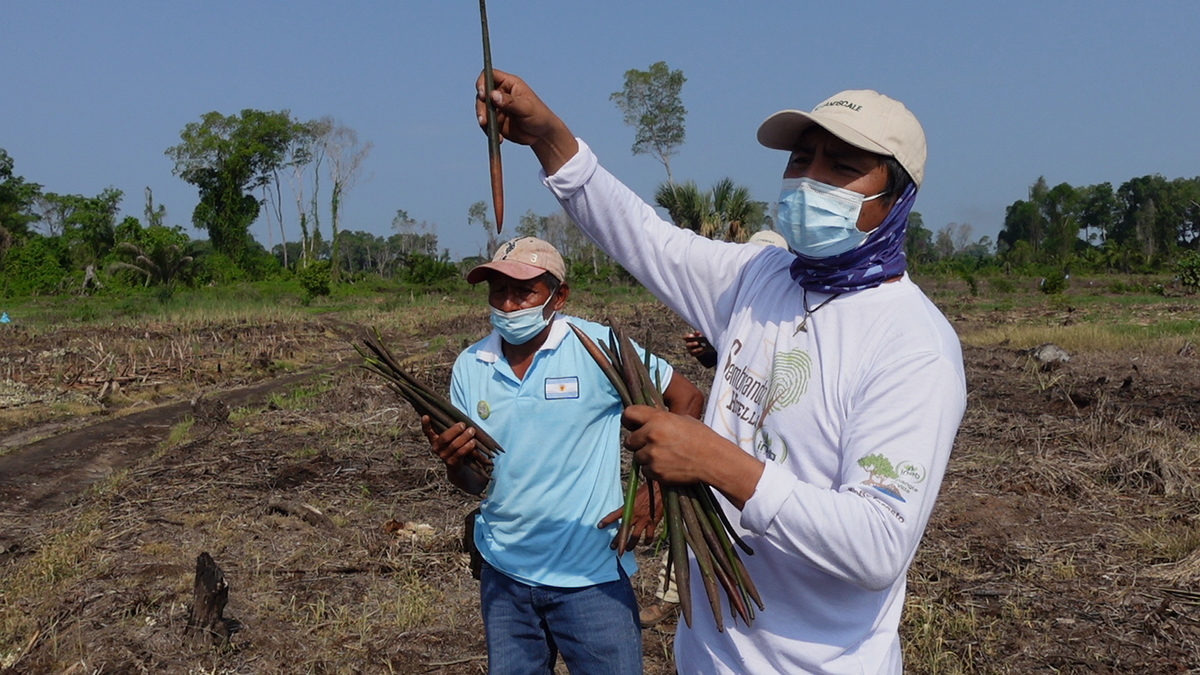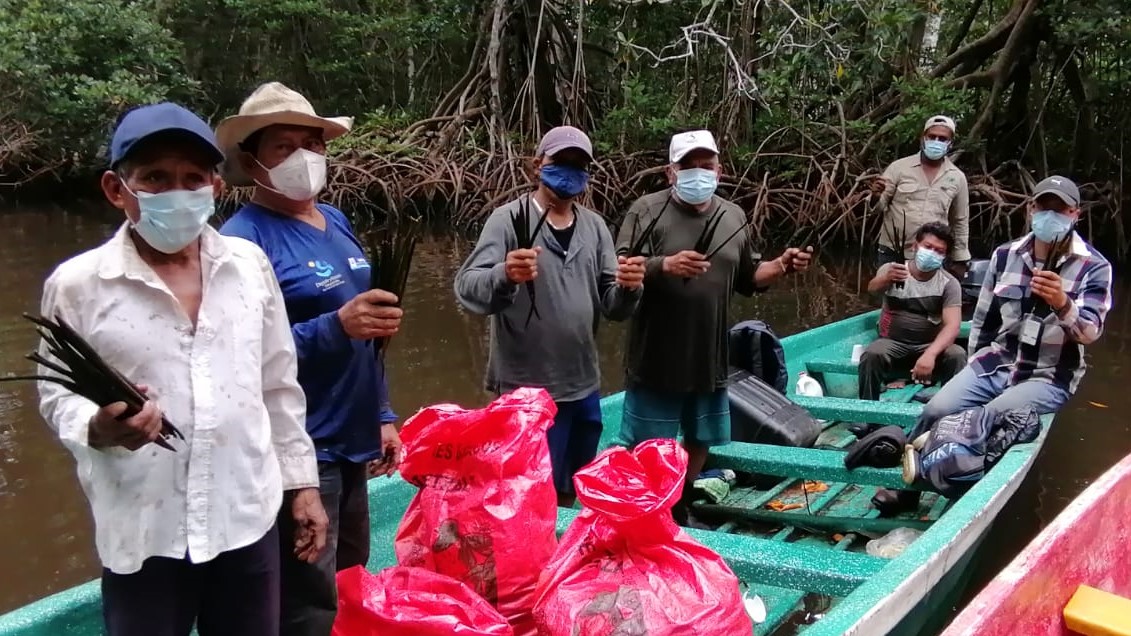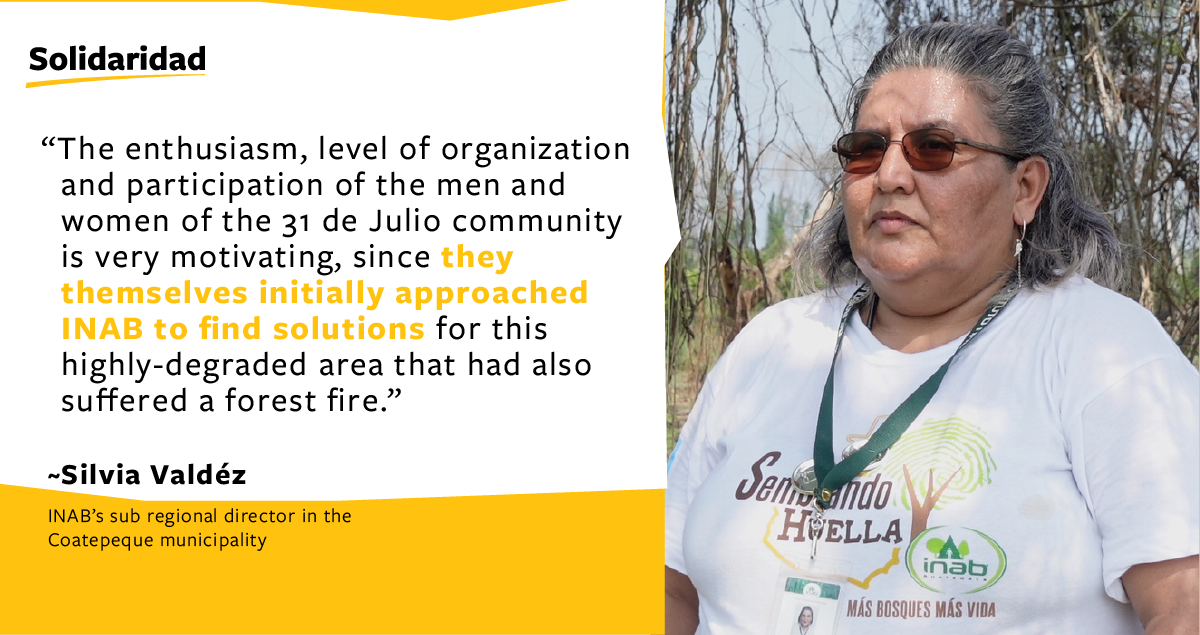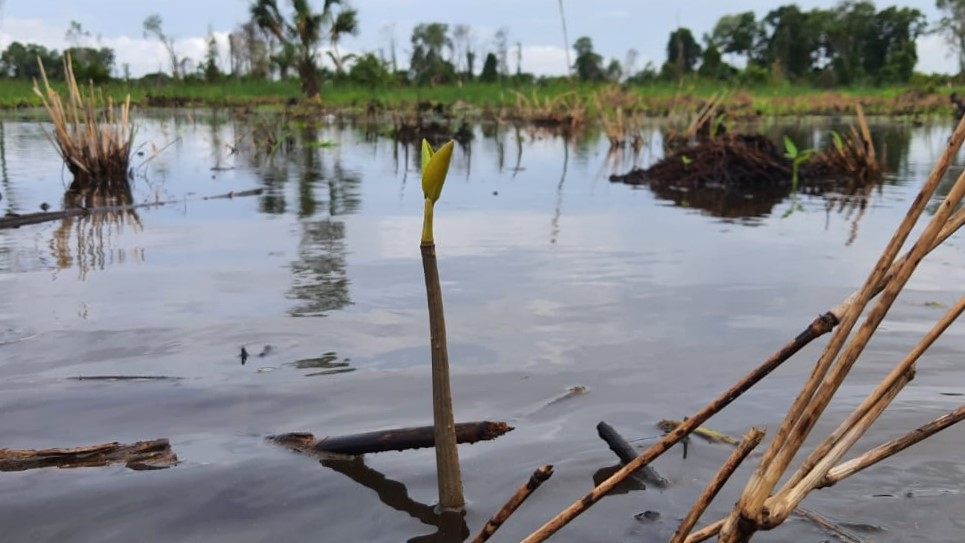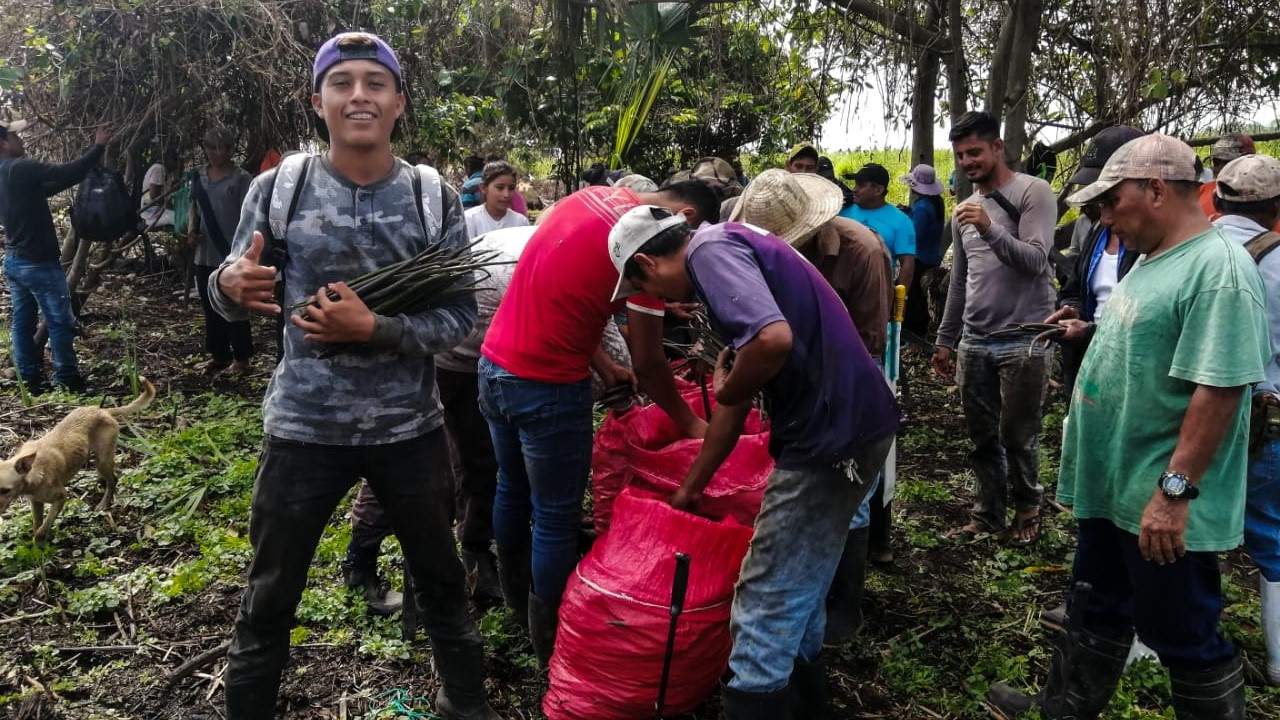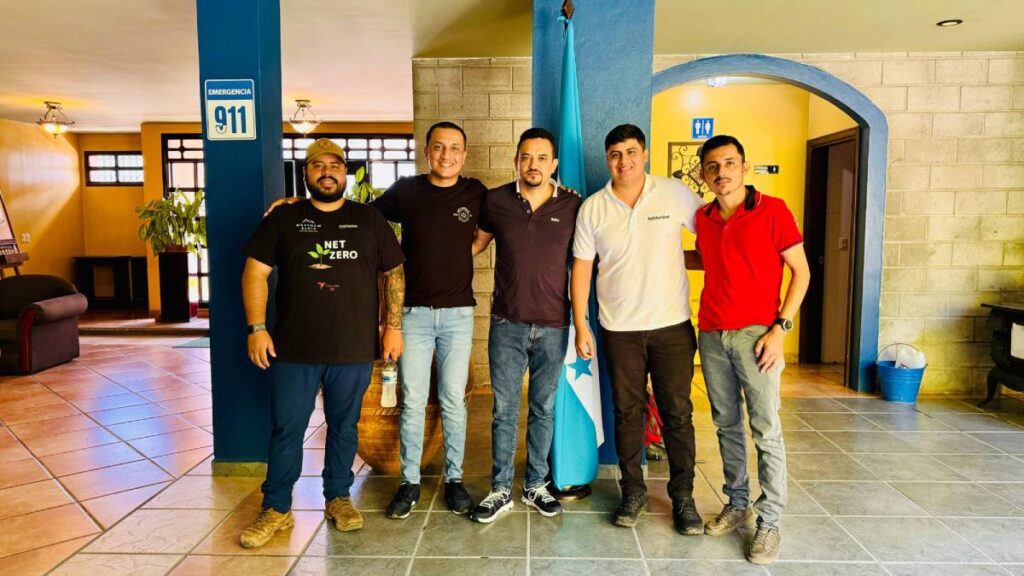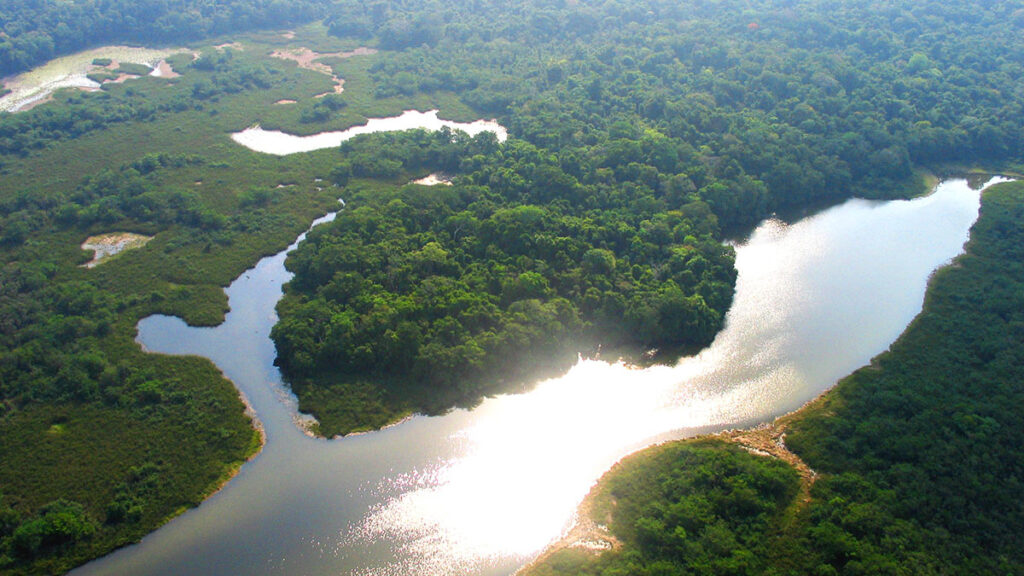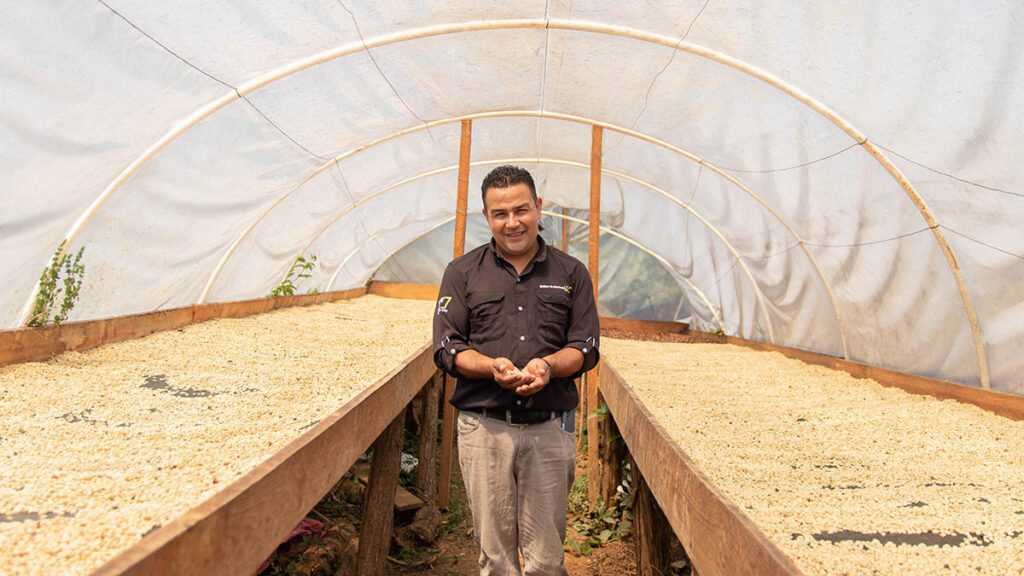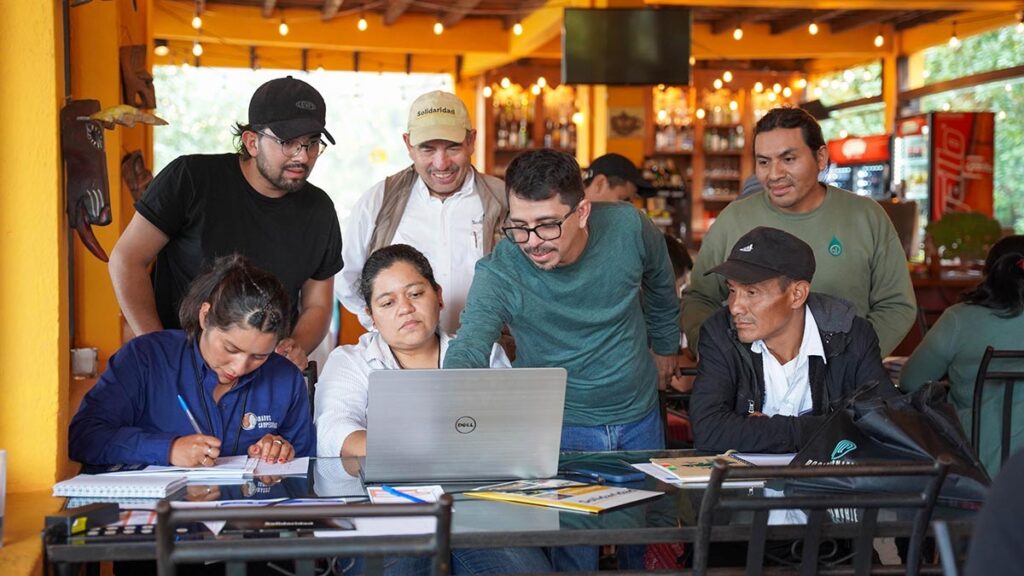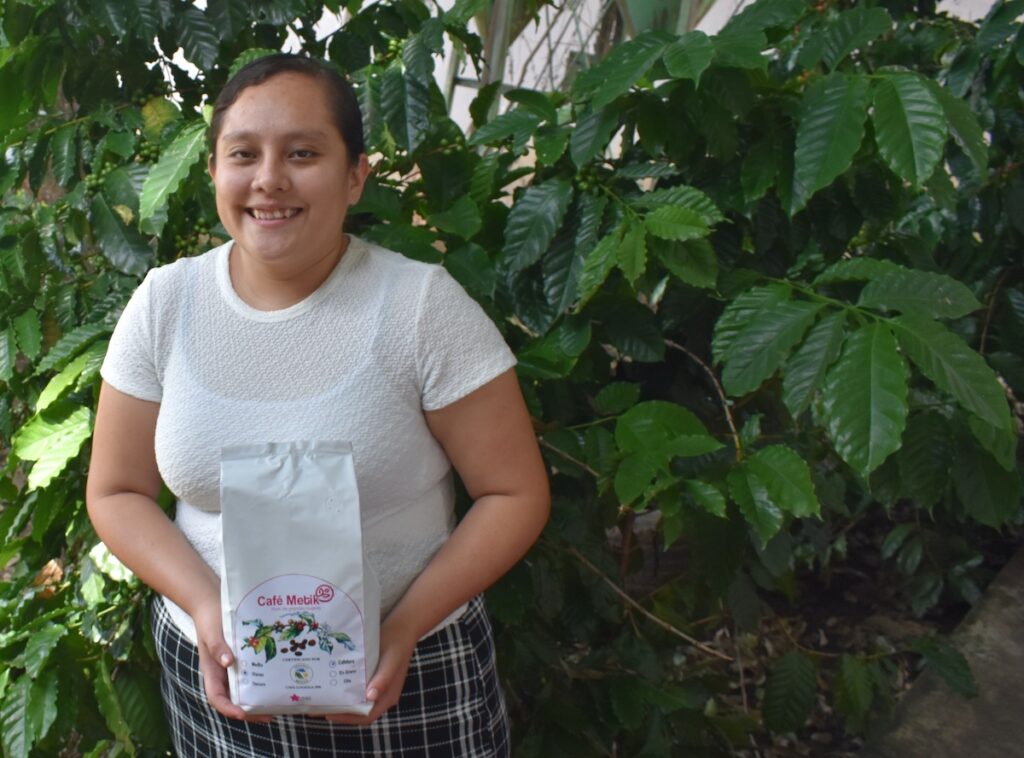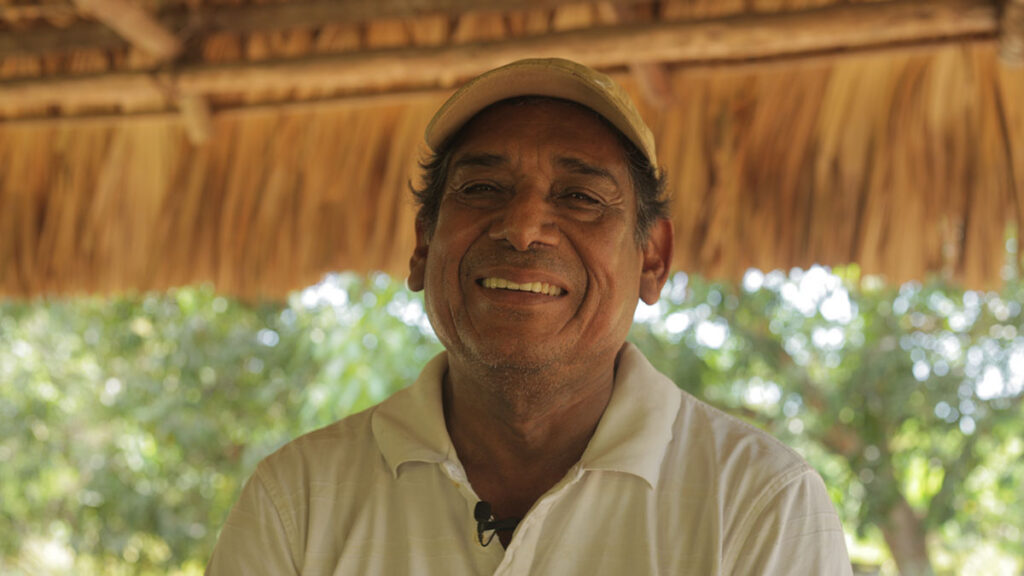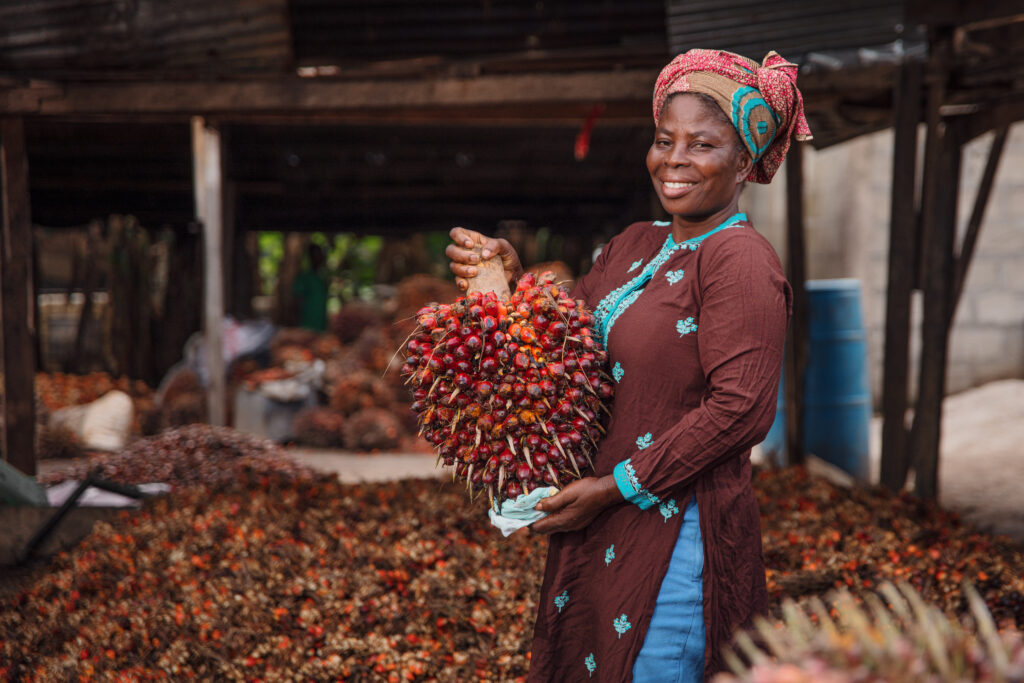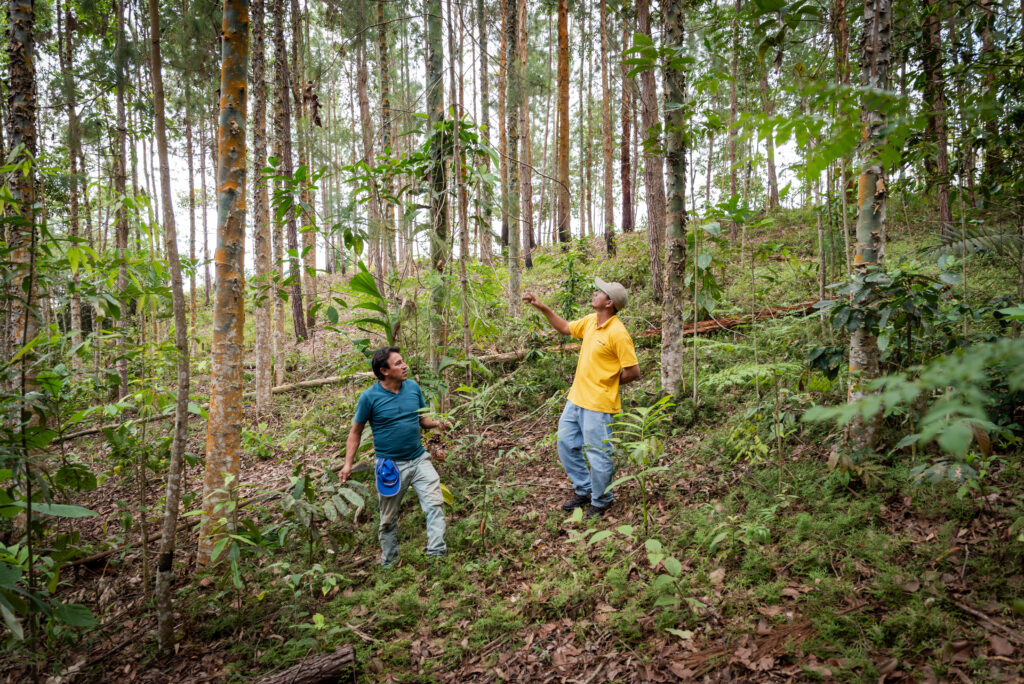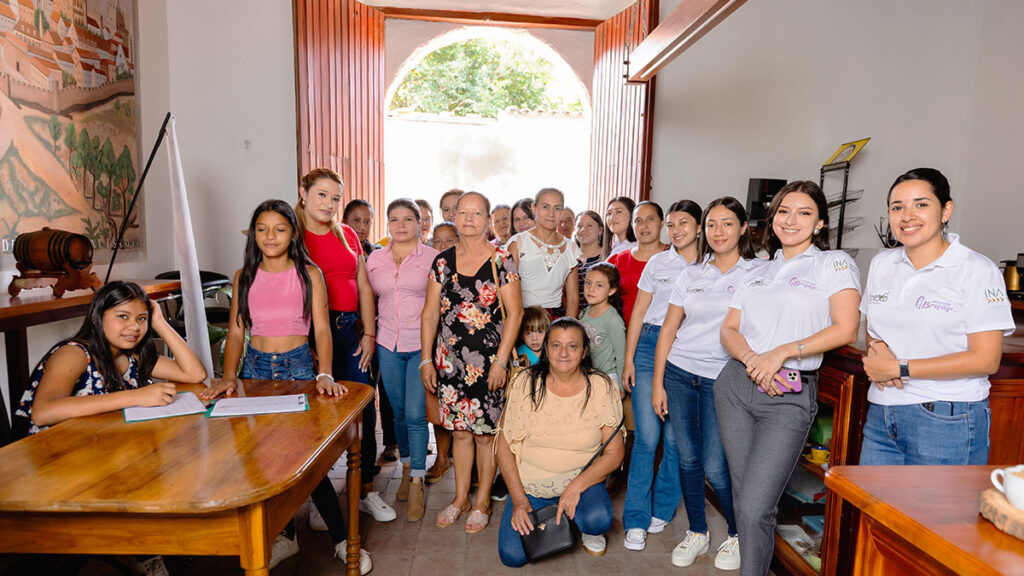In 2021, two companies are co-designing a decent work solution with us that will allow for an improved bargaining position and improved working conditions for workers in the palm oil sector in Honduras through the RECLAIM Sustainability programme.
Once the benefits of sustainable solutions and practices have been proven, standards can go a long way to encourage smallholders, companies and even consumers to embrace production and products that protect people and the planet while creating a profit. Ideally, there will be an appropriate mix of mandatory, voluntary, national and international measures that will foster business respect for the environment and for human rights in Central America and across all regions, and civil society organizations (CSOs) will speak on behalf of underrepresented groups to make this happen as well.
We support the development and strengthening of sustainability standards and mandatory policy frameworks based on inclusive, multi-stakeholder processes with farmer and worker representation. This inclusion helps transfer the ownership to the producers rather than keeping standards exclusively in the reach of large corporations. In Central America and Mexico, we focus heavily on engaging multiple stakeholders, including CSOs, to achieve the implementation of these mandatory standards.
In 2021, through the RECLAIM Sustainability! programme in the palm and coffee sectors, 18 CSOs in Honduras were trained or supported in decision making and dialogue on fair value distribution, gender and decent work, and five CSOs improved their participation. We initiated dialogue through two sector multi-stakeholder platforms —Mesoamerican Palm Oil Alliance (MAPA) and the Sustainable Coffee Platform in Honduras— that include decision makers from CSOs and the public and private sectors. Also, the Honduran government approved the new National Gender Policy as a result of Solidaridad’s policy work.
Lobbying for climate action at COP26
In November, Solidaridad Central America, Mexico and The Caribbean sent a delegation to the 2021 UN Climate Change Conference (COP26). Our specialists in climate, landscapes, communications and Solidaridad programming worked together across regions to create a package of lobby and advocacy materials to engage potential partners at the event. The delegation returned having developed new relationships with government, private-sector and civil-society partners who will take action with us to promote climate resilience in Honduras and Guatemala in 2022.
We validate all interventions against three core principles: in balance with nature, prosperity and inclusivity.
When partnering with government agencies and CSOs, the goal is promoting the policy that will put sustainable practices at the center, increasing productivity on the farm and strengthening farmer resilience, adaptation and mitigation response to climate change.
Engaging Honduran actors to implement mandatory frameworks
In October, Solidaridad co-organized an event with MiAmbiente (the environmental ministry in Honduras), in which government institutions, private companies and producer organisations from the national palm oil sector, Solidaridad and other civil society organisations ratified the palm oil zero-deforestation agreement.
This agreement is the second of its kind signed in Latin America. In Honduras, it is particularly relevant because it was signed with the entire sector’s participation. Palm producers’ commitment in Honduras is deep, with full conviction that sustainability is achieved with shared responsibility, dialogue and transparency.
Sofía Núñez, Programme Manager and Legal Representative, Honduras
The signatories to the agreement committed to executing concrete actions, including the implementation of a deforestation monitoring protocol developed by the National Institute of Forest Conservation and Development, Protected Areas and Wildlife (ICF).
One important sector achievement in 2021 is RSPO’s approval of the National Interpretation of the Principles and Criteria (P&C) in Honduras, Guatemala and Nicaragua. These approved National Interpretations are a testament to the excellent work the sector can do through multi-stakeholder platforms such as MAPA.
Flavio Linares, Head of Technical Programmes, Solidaridad Central America
Supporting value chain actors in developing and achieving approval for the National Interpretation of RSPO’s P&C ensures Solidaridad is contributing to an enabling policy environment that promotes social justice issues, such as social inclusion, fair wages and fair working conditions. Also, it allows for us to engage with people from the public and private sectors and CSOs that are also consumers who need to fully understand their country’s context in order to appropriately grasp the aims of certification standards.
Earlier, in February, the National Coffee Board (CONACAFE) approved the “Coffee Sub Sector Gender Policy” in Honduras. And since April, the gender policy is an official document that has been published in the government’s Official Gazette. Solidaridad has since worked with CONACAFE, and other actors to create a national-level implementation plan for the gender policy through the RECLAIM Sustainability! coffee programme.
We are committed to connecting generations of producers and workers and ensuring that women and youth are enthusiastic and prepared to take leadership both at the business level and within the institutional framework.
Nelson Omar Fúnez, CONACAFE Administrative Technical Secretary
The development process for the gender and inclusion policy was an inclusive, collaborative process where different stakeholders such as civil society, producers and different actors of the coffee chain joined government actors in working together to create the document and achieve its approval.
So far, CONACAFE, Solidaridad, Rikolto, Alliance of Women in Coffee (AMUCAFE), Association of Coffee Exporters of Honduras (ADECAFE) and government actors have convened in more than 15 meetings and provided 7 workshops to propel this national policy. Together, CONACAFE, Solidaridad, and partners are promoting activities and initiatives that will:
- strengthen gender equity and social inclusion in the sector and related organizations
- increase access to services and resources for women and youth working in the sector
- build the leadership capacity of women and youth working in the sector, and
- integrate key stakeholders into the gender equity conversation, to build awareness, coordinate actions and promote change.
Testing technology in the coffee sector in Honduras and Nicaragua
Gender inclusion is an important part of the RECLAIM Sustainability! programme launched this year in the Honduran coffee sector. Also as part of this programme, the Capucas Cooperative in Copán, Honduras is partnering with Solidaridad to test blockchain technology to create a traceability model for the coffee value chain. “We are happy to establish this partnership with the Cooperative and work with the key national stakeholder partners to influence the country’s policy agenda to achieve a better positioning of coffee producers, especially women producers,” said Sofía Núñez.
Solidaridad partner Molinos de Honduras will also test new technology in coffee farms as part of carbon footprint assessment pilots. Through the digital tools, we will be able to show how farm practices influence greenhouse gasses capture or emission. Based on the data collected, pilot participants will be able to make informed decisions that reduce their carbon footprint, such as implementing climate-smart practices. Participants will also have data that helps them seek a better market for Honduran coffee that recognizes the added value of climate-smart agriculture.
Fundación Aldea in Nicaragua will also test new technology in the coffee sector. Agroforestry in Action, or ACORN, is an agroforestry marketplace created by Solidaridad partner Rabobank that offers lower transaction costs and a significantly higher carbon price compared to other markets. Fundación Aldea and Solidaridad signed an agreement this year to replicate successful Solidaridad pilots that have provided the proof of concept for making carbon markets work for small coffee farmers using ACORN.
The accompanying trees in a coffee agroforestry system provide important environmental services that can be monetized on ACORN through this pilot project.
The additional income will trigger producers’ adoption of climate-smart practices, and improved monitoring and verification technology will connect smallholder producers to the carbon market at low cost. This would be an important incentive for smallholders to promote and adopt the conservation, management and use of agroforestry.
Through this partnership, we carried out capacity building for 18 field technicians that are now able to collect and process georeferenced information using ACORN’s methodology. These field technicians contributed to calibrating, using 100 hectares of land, the mathematical model that will quantify volumes of carbon sequestered in the area. Technicians also supported data intake of 1,000 smallholder plots. The algorithm will later be applied to calculate the carbon sequestration in these plots, so the smallholders can sell credits on ACORN.
In 2022, the ACORN pilot will benefit at least 2,500 producer families in a total area of cultivation of 10,000 ha.
Molinos de Honduras and Fundación Aldea are voluntarily participating in pilots that will show the economic benefits of using climate-smart agriculture and reducing the carbon footprint along the coffee value chain. These pilot programmes could serve as case studies that would inform mandatory national policies in the future.
Citizens working together to improve their landscapes in Guatemala
In Guatemala, Solidaridad is partnering with the Rainforest Alliance, the National Forest Institute (INAB) and other partners to pilot the LandScale tool in the Pacific coast, one of the most important agricultural areas in the country.
Along with providing a tool that can report progress towards sustainability, LandScale integrates an assessment framework to create a baseline for a given landscape with a verification mechanism that endorses the progress attained. Solidaridad and LandScale partners encourage community members to take an active role to improve conditions beyond their own personal interest by influencing through dialogue with companies, governments and other decision makers to create more sustainable practices in value chains.
The partnership with LandScale has come to strengthen many processes in the pursuit of landscape improvements. We are jointly developing a series of activities ranging from forest nurseries, community work, restoration, among others.
Luis Alfredo Vela Herrera, the National Forest Institute (INAB) Regional Director
In March, Solidaridad and LandScale organized a visit to Retalhuleu, Guatemala to introduce a variety of forest incentive programmes to 54 participants from different communities on the southern coast of Guatemala. The visit focused on discussions on the need to maintain a balance in ecosystems for the landscape to be productive in a sustainable way.
In a local sawmill, participants learned what processing wood to make furniture and other functional products entails. Dani Gabriel Fuentes, from the community El Chico, reflected on the time it takes for a tree to reach the circumference necessary for processing, how a lack of reforestation can link to climate change and what her role is in the landscape. Dani expressed her conviction to protect trees and to plant more native trees in her community.
In May, LandScale partners, including Solidaridad, launched a campaign called “Sembrando Huella” (Sowing Footprint) promoted by INAB. The campaign’s kick-off activity was a mangrove reforestation initiative in the 31 de Julio community of Ocós in San Marcos, Guatemala.
In April, LandScale partnered with six other organizations, including Solidaridad, to launch the regional “Premio Salvemos El Manchón 2021”, a contest inviting citizens, institutions, organizations, technicians and companies to partner up to create a way to reduce pollution in the Ocosito River, which flows into the Manchón Guamuchal reserve, located in southwest Guatemala.
We called on the brightest and most enthusiastic minds to come up with solutions to save the Manchón Guamuchal. For the partners, and especially Solidaridad, it was important to urge contestants to create a submission that would integrate holistic initiatives to address issues beyond the special protection area.
José Luis López, from Solidaridad’s Biodiversity Programme in Guatemala
In June, the Salvemos El Manchón alliance, made up of nine multisectoral institutions at the time, announced the proposal put forward by the Guatemalan companies Vetiver-Tec and Natural Garden as the contest winner. The proposal is based on comprehensive watershed management and establishing gallery forests along the Ocosito River in a preventive way to generate a natural filter.

